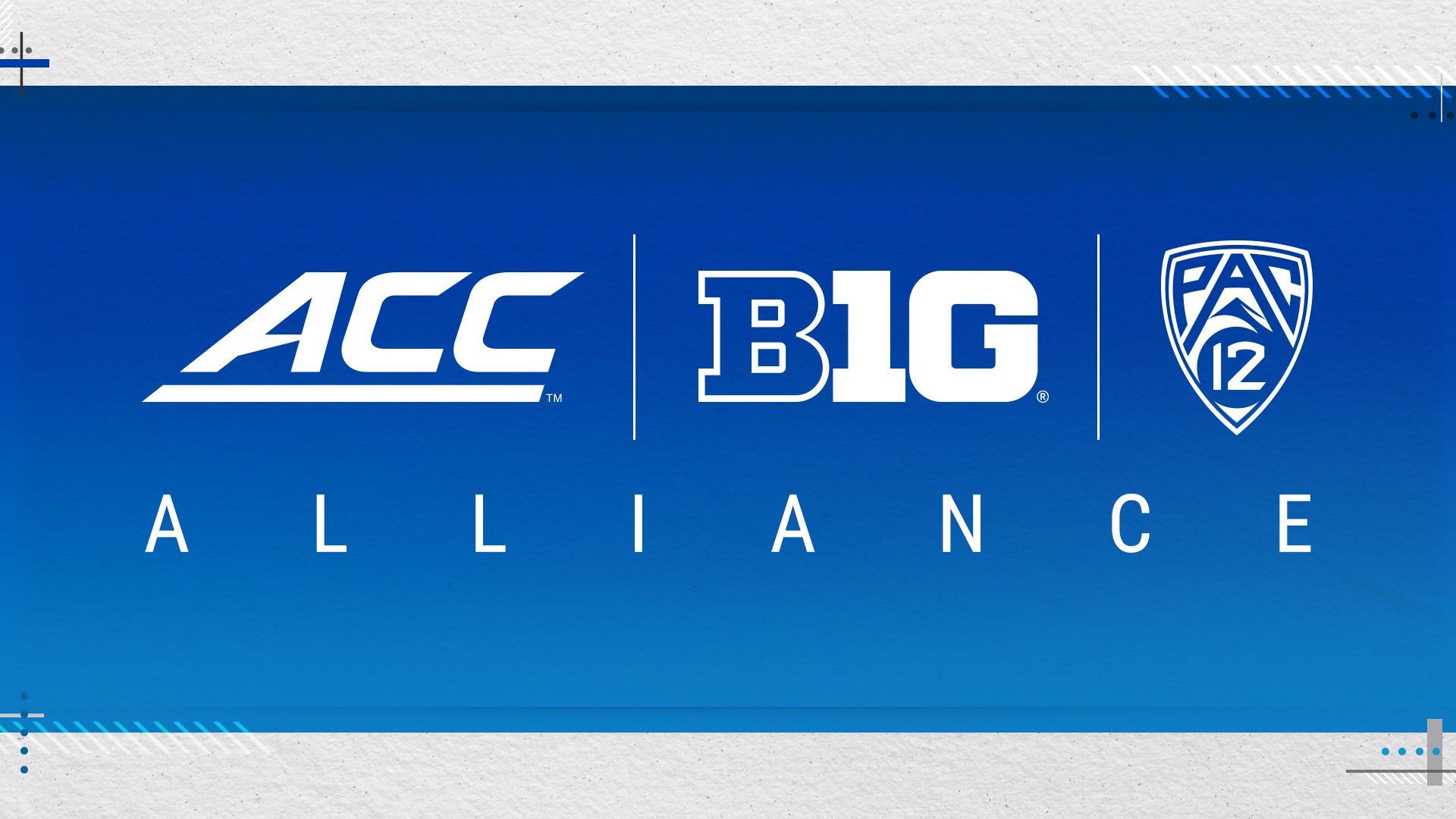
Alliance Working Groups Complete Initial Series of Student-Athlete Focused Initiatives
GREENSBORO, NC & ROSEMONT, IL & SAN FRANCISCO, CA – The Atlantic Coast Conference, Big Ten Conference, and Pac-12 Conference today announced the completion of an initial series of student-athlete focused Alliance initiatives, which took place over the past several weeks and include efforts in the areas of civic engagement; student-athlete leadership and welfare; sustainability; social justice; diversity, equity, and inclusion; and mental health.
The Alliance hosted a student-athlete leadership webinar that served as the first official touchpoint and collaboration for student-athletes throughout the Alliance. The webinar began with the three Alliance commissioners discussing the vision and mission of the Alliance and the importance of having student-athlete input and leadership across all areas of collegiate athletics. Following the discussion with the commissioners, the group welcomed guest speaker, Nneka Ogwumike – former Stanford Women’s Basketball player and current LA Sparks player/WNBPA President. One of the major topics Ogwumike spoke to the group about was the power and weight of advocacy. The webinar concluded with student-athletes leading breakout discussions about topics and initiatives that are meaningful to them.
The Alliance also hosted two education webinars for student-athletes on the topics of social responsibility, civic engagement, and impact. Entitled “#AllVoteNoPlay”, the webinars took place leading up to the NCAA required day off for civic engagement, and focused on what civic engagement is and why it is important to student-athletes. They also empowered student-athletes with information about how to exercise their power through the act of voting. Webinar speakers included Georgia Tech men’s basketball associate head coach Eric Reveno, who hatched the original idea for the mandatory day off for student-athletes, and Jamil Favors, an experienced attorney and advocate for voter empowerment.
The Alliance additionally hosted a panel entitled “Returning to Reuse on Game Day and Beyond” as part of the Pac-12’s Team Green Initiative annual conference. Panel speakers included athletic, sustainability, and facilities representatives from University of Southern California, University of Utah, University of Miami, and Ohio State, with the discussion focused on a renewed look at reuse, recycling, composting, and partnership strategies to drive impactful zero waste strategies on game days and beyond. The session examined the successful partnership between campus sustainability and athletic departments as well as facilities operations and green athletics initiatives and showcasing a commitment to zero waste and sustainability. For a sample of that discussion visit:
These forums were followed by the recent announcement of the Alliance’s “Teammates for Mental Health” initiative designed to raise awareness about the importance of student-athlete mental health and wellness. This initiative builds upon the work all three conferences continue to do to support student-athlete mental health, including the creation of dedicated task forces and cabinets comprised of mental health professionals on campuses at the 41 world-class institutions that comprise the ACC, Big Ten, and Pac-12 Conferences. For more information on “Teammates for Mental Health” visit: https://pac-12.com/article/2021/11/29/acc-big-ten-and-pac-12-announce-alliance-mental-health-initiative
The initial round of Alliance initiatives was developed by nine working groups comprised of members of each of the three conferences. The working groups are tasked with the development of initiatives in connection with the three pillars of the Alliance: student-athlete support, the future evolution of college athletics, and scheduling. Each working group consists of a minimum of one representative per conference office with additional input from ACC, Big Ten and Pac-12 student-athletes, athletic directors, head coaches and staff members as appropriate. These working groups were formed immediately following the announcement of the Alliance on August 24, 2021, and cover the following key areas:
- Student-Athlete Support & Development
- Academics
- Social Responsibility & Impact
- Governance & Compliance
- Communications, Public Relations & Marketing
- Football Scheduling
- Men’s Basketball Scheduling
- Women’s Basketball Scheduling
- Olympic Sports Scheduling
“It is tremendously rewarding to see the initial Alliance-led initiatives come to life,” said ACC Commissioner Jim Phillips, Ph.D. “Supporting our student-athletes and administrators in the areas of social responsibility, student-athlete welfare, social justice and mental health will continue to be a priority as we work to provide the best resources possible for our institutions and conferences.”
“These initiatives underscore how student-athletes are at the center of everything we do and are among the reasons the Alliance was formed,” said Big Ten Commissioner Kevin Warren. “All nine Alliance working groups had a hand in creating, shaping, and bringing to life these panels, forums, webinars, and initiatives, and those groups continue to diligently and regularly collaborate around ways to support and engage student-athletes at our 41 member institutions.”
“Engaging with and supporting our student-athletes on essential matters that they care about is at the heart of the Alliance mission,” said Pac-12 Commissioner George Kliavkoff. “These initial student-athlete forums, which are collaborative in nature, will help enable the Alliance to develop initiatives that benefit our student-athletes’ growth and well-being throughout their collegiate experience and beyond.”
The Alliance – which was unanimously supported by the presidents, chancellors, and athletics directors at all 41 institutions – is guided in all cases by a commitment to, and prioritization of, supporting student-athlete well-being, academic and athletic opportunities, experiences, and diverse educational programming. The three conferences are grounded in their support of broad-based athletic programs, the collegiate model, and opportunities for student-athletes as part of the educational missions of the institutions.






